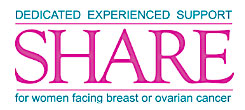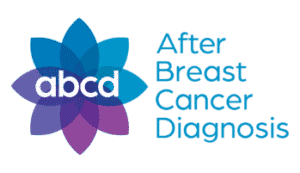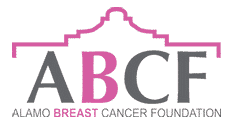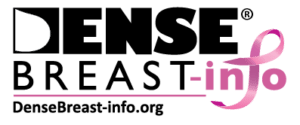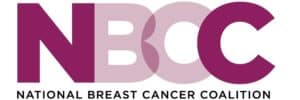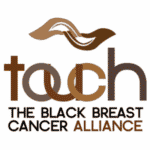Allies
The Lobular Breast Cancer Alliance (LBCA) believes that accelerating the focus on ILC research worldwide requires cooperation among researchers and labs, breast cancer organizations, and advocacy groups.
One of LBCA’s goals is to partner with organizations across the globe to collectively advance invasive lobular carcinoma (ILC) research and education and expand and coordinate the network of ILC advocacy. We believe that together we are most effective at raising awareness and promoting lobular breast cancer research that includes and is meaningful to people with ILC. We strive to be inclusive in the events that we plan and implement, many collectively with our partnering groups. In this way, we will join forces and make as great an impact as possible toward eradicating ILC.
We are always cultivating new relationships with organizations so please check back for additions.
U.S. Partner Organizations
ShareCancerSupport.org focuses on breast and ovarian cancers. SHARE partners with LBCA to offer educational webinars on ILC and lobular specific peer support, which are archived on LBCA and SHARE’s websites. SHARE’s website includes a Tools and Resources section that includes webinars, videos, and blogs. The organization offers support services via helplines and groups, including lobular specific peer support on the National Hotline (844-275-7427). You can also sign up for their newsletter.
After Breast Cancer Diagnosis provides phone-based, one-to-one, customized emotional support for all those affected by breast cancer through its unique signature mentoring program. ILC advocates are invited to go through ABCD’s online training to become a Mentor offering one-to-one peer support.
Alamo Breast Cancer Foundation is an all-volunteer nonprofit organization focusing on breast cancer issues including education, support, advocacy and community outreach. Its mission is to end breast cancer by assisting patients, informing health professionals and policymakers, and expanding knowledge through education and community outreach.
DenseBreast-info.org is the world’s leading educational resource on dense breasts. The medically-sourced website, developed for both patients and health providers, is the collaborative effort of world renowned breast image experts, and medical reviewers. Website tools include a patient video series, FAQs, information about breast imaging technologies, and legislative information about state density “inform” and insurance laws.
GRASPcancer.org is the website for GRASP, a patient-led program that connects and empowers patients, clinicians, and researchers to exchange ideas and learn from each other. Together, patients and cancer researchers can advance more scientific breakthroughs. These bidirectional learning opportunities will drive the development of more impactful and fundable research and will make faster progress toward the development of therapies to end cancer. Unique from other programs, GRASP recognizes the value patients bring to research. Oncologists are experts in treating cancer, researchers are experts in studying cancer, but patients are experts in living with cancer.
MBCalliance.org is the website for the MBCAlliance whose mission is to unify the efforts of its members to improve the lives of, and outcomes for, those living with metastatic breast cancer and their families through increasing awareness and education about the disease and advancing policy and strategic coordination of research funding – specifically focused on metastasis – that has the potential to extend life, enhance quality of life and ultimately … to cure.
The National Breast Cancer Coalition (NBCC) is a collaboration of activists, survivors, researchers, grassroots groups, and national organizations that have come together as disruptive innovators for social change. NBCC links hundreds of organizations and tens of thousands of individuals from across the country into a dynamic, diverse coalition that gives breast cancer a meaningful voice in Washington, DC, and state capitals, in laboratories and health care institutions, and in local communities everywhere. NBCC increases funding and leads efforts for innovative breast cancer research; monitors how research funds are spent; expands access to quality health care for all; and ensures that trained advocates influence all decision making in breast cancer.
TOUCH, The Black Breast Cancer Alliance drives the collaborative efforts of patients, survivors, advocates, advocacy organizations, health care professionals, researchers, and pharmaceutical companies to work towards the common goal of eradicating Black Breast Cancer. Their work requires partnership, shared resources and knowledge, and consistent action so that we can hold each other accountable towards advancing critical, life-saving science for Black breast cancer survivors/thrivers. TOUCH defines Black Breast Cancer as the constellation of exposures, experiences, and lack of science for Black women diagnosed with breast cancer that causes Black women to face disproportionately worse breast cancer outcomes. researchers, grassroots groups, and national organizations that have come together as disruptive innovators for social change.

Project Life is a free virtual membership-based wellness house serving those living with stage IV advanced metastatic breast cancer as well as their caregivers. Their focus is on quality of life through five dimensions of wellness: financial, emotional, physical, social and spiritual. They concentrate on the whole person, building community and are inclusive of all regardless of skin color, and gender identity. The virtual wellness house is for metastatic patients and their loved ones. All of our programming is offered for free. Project Life also offers Peer to Peer Mentorship. The mentorship program matches mentees with trained peer mentors who have similar experiences and uniquely supports the mentors. There are a number of volunteers living with metastatic ILC who are available to mentor individuals with similar lived experience. Training for people who want to become a mentor is offered annually in October. If you are interested in finding a mentor, or exploring opportunities to be a mentor, please contact the Director of Mentorship, Abigail Johnston at mentorship@projectlifembc.com. Project Life was founded and created by those living with the disease.
Other Allies
BreastCancer.org has educational links as well as patient-to-patient support via organized chat boards. Information on this site includes lobular-specific educational information and patient message boards.
Breast Cancer Research Foundation advances research with grants to top researchers and institutions around the world. The organization funded the First International Lobular Breast Cancer Symposium in Pittsburgh in 2016. Find webinars and a newsletter sign-up on the site.
BreastCancerTrials.org is a nonprofit service that encourages individuals affected by breast cancer to consider clinical trials as a routine option for care. The site has a searchable breast cancer clinical trials database. Learn more about MetastaticTrialSearch here.
Cancer.gov is the website of the National Cancer Institute, part of the National Institutes of Health. This government- funded site has educational materials and guidelines for all cancers.
Cancer.org is the American Cancer Society’s website focusing on all cancers including breast cancer. The Society sponsors support programs for breast cancer patients throughout the country.
FORCE (Facing Our Risk Empowered) focuses on education and advocacy around hereditary bBreast, ovarian and related cancers, with information about genetic mutations linked to breast cancer. This includes the rare CDH1 mutation (Hereditary Diffuse Gastric Cancer Syndrome) that increases the risk of ILC and stomach cancer.
HereditaryDiffuseGastricCancer.org shares in-depth information specifically about the rare CDH1 inherited genetic mutation and the link to ILC and stomach cancer.
Living Beyond Breast Cancer is a national nonprofit organization that seeks to create a world that understands there is more than one way to have breast cancer. Their site has information and support services for all breast cancers as well as a newsletter sign-up. Their breast cancer helpline (888-753-5222) includes volunteers with lobular breast cancer. You can also find support here.
MBCproject.org, or the Metastatic Breast Cancer Project, is a new approach to cancer research where patients share samples and clinical information with researchers. This project is prioritizing lobular tumor samples for researchers. LBCA is a partner of the MBCProject. If you are a patient with metastatic ILC, learn how to sign up and identify yourself as lobular here.
Metastatic Breast Cancer Network has a mission to educate, advocate, and empower those with metastatic breast cancer. They provide materials for both education and support. Metastatic Breast Cancer Network is funding research to better understand lobular metastasis. Go to the site to sign up for their newsletter.
Metavivor.org has educational materials on research, awareness, and peer-to-peer support for metastatic breast cancer patients. Go to the site to subscribe to their newsletter.
NationalBreastCancer.org provides educational tools and support services for those with breast cancer.
Susan G. Komen Foundation offers educational links, hosts conferences, and funds breast cancer research grants. They also host a patient research advocate program titled Advocates In Science.
International Partners
European Lobular Breast Cancer Consortium (ELBCC) is a consortium of 24 institutions across Europe. It began in 2018 with the intention to develop a platform to bring together discovery scientists, translational researchers, and clinical experts with the ultimate goal to improve the understanding, diagnosis, treatment, and prognosis of women suffering from ILC. The consortium was founded by ILC researcher and LBCA Scientific Advisory Board member Patrick W.B. Derksen, PhD, of UMC Utrecht, and colleagues Christine Desmedt, PhD, of KU Leuven, and Anne Vincent-Salomon, MD, PhD, of Institute Curie.
The newly formed patient advocate group working with the ELBCC is called the European Lobular Breast Cancer Advocates or ELBCAdvocates. To find out more about ELBCAdvocates contact Siobhan Freeney at: elbcadvocates@gmail.com
Learn more about lobular breast cancer by reviewing the ELBCC What Is Lobular Breast Cancer brochure. The brochure, which is now available here in 24 languages, was produced by the ELBCC in conjunction with the ELBCAdvocates.
Lobular Ireland is a network of patient-advocates with lobular breast cancer working closely alongside a scientific board of breast cancer researchers and clinicians. Lobular Ireland advocates for research into ILC and aims to raise awareness about invasive lobular breast cancer. For more information contact founder Siobhan Freeney at lobularbreastcancerirl@gmail.com or visit www.lobularIreland.com
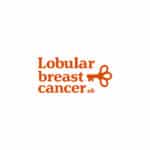
Lobular Breast Cancer UK (LBCUK) is a newly established charity working to ensure that lobular breast cancer is comprehensively understood, diagnosed effectively, treated uniformly, and there is support for patients across the four countries of the UK. They are led by people who have been diagnosed with ILC and commit to speaking up for themselves and anyone affected by it. They aim to increase and improve information about lobular; work collaboratively with researchers, clinicians, patients and stakeholders to ensure that research meets the needs of patients, and provide knowledge that leads to changes in treatment frameworks; and ensure that appropriate support and connections are available for patients to reduce the isolation and fear of an ILC diagnosis. Their Scientific Advisory Group, made up of clinicians and researchers from across the UK, ensures that all communications and information are based on sound scientific and medical evidence.

Charité University Medicine, ILC Registry Trial (Berlin, Germany)
As one of the largest university hospitals in Europe, the Charité University Medicine in Berlin, Germany, combines research, teaching and patient care at the highest international level. In 2017, the ILC Registry Trial was initiated at the Clinic for Gynecology with Breast Center at the Charité under the leadership of Prof. Dr. Maria M. Karsten and Prof. Dr. Jens-Uwe Blohmer. The ILC Registry Trial is Germany’s first breast cancer registry that solely focuses on invasive lobular breast cancer. In addition to the analysis of clinical data, the study examines molecular pathological properties and mutation profiles of tumor tissue, as well as surveying participating patients via an online survey.
For more information visit the ILC Registry Trial website (German only) or contact PI Prof. Maria M. Karsten at ilc-registerstudie@charite.de (German or English).

